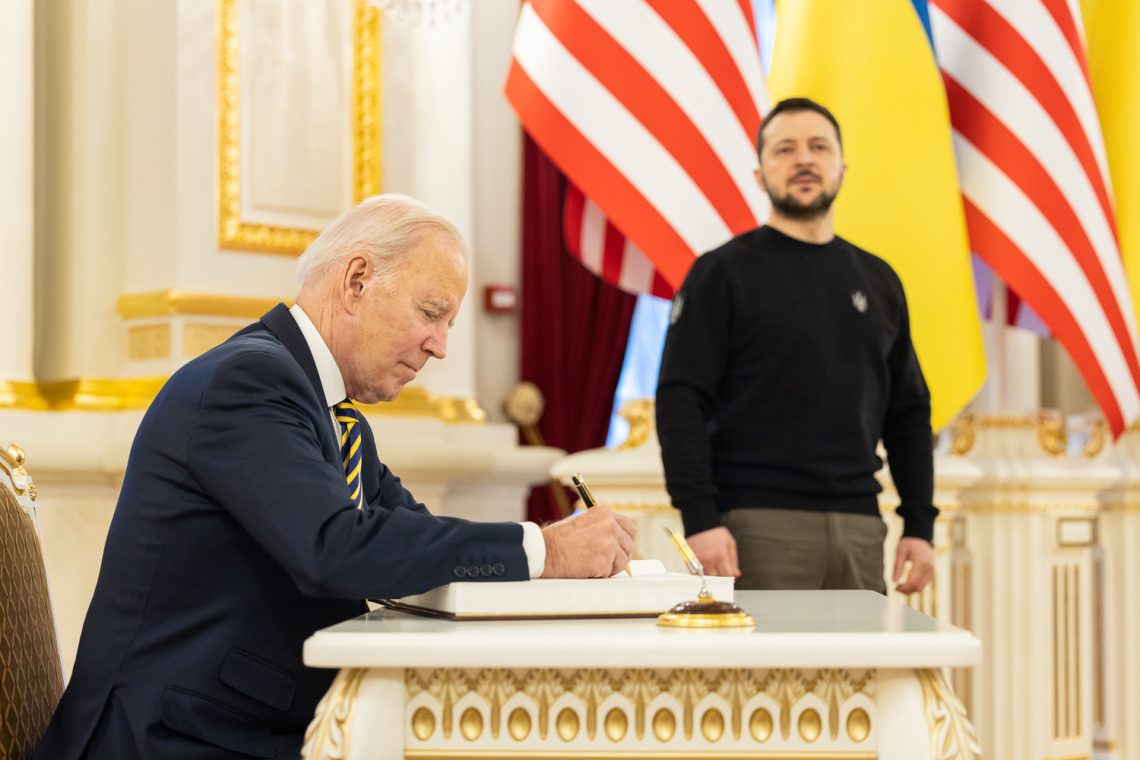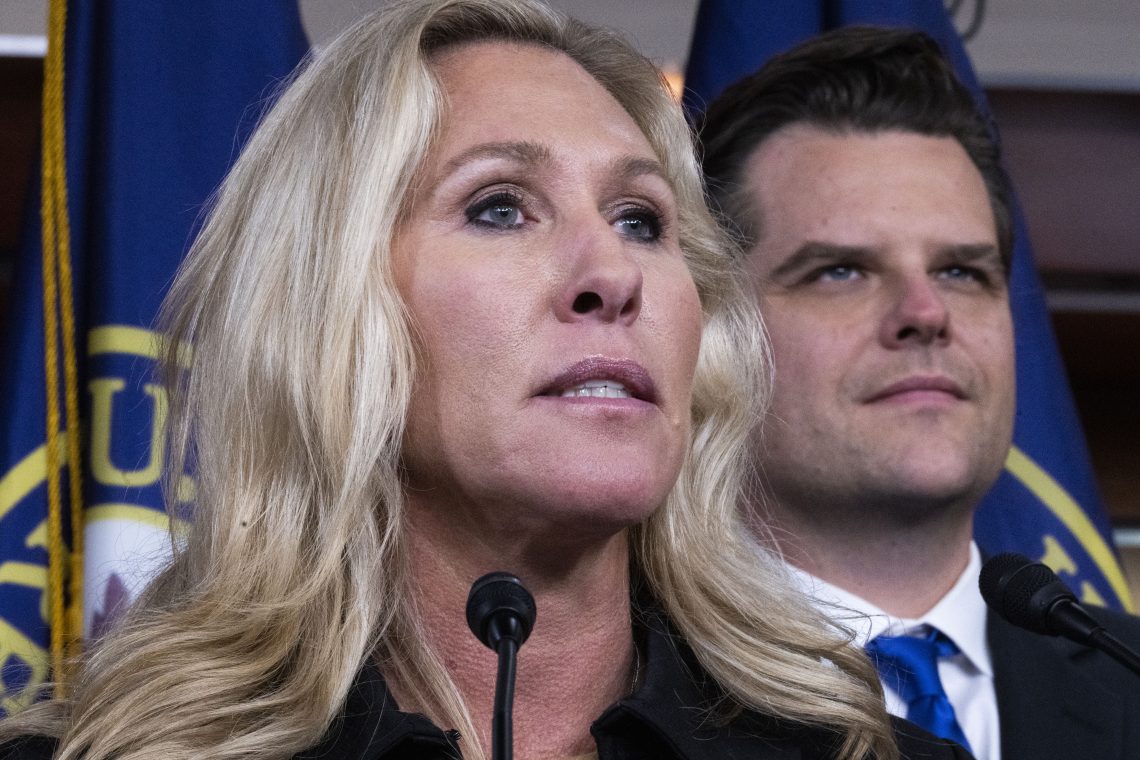Would a Republican U.S. president support Ukraine?
A faction of Republicans in Congress opposes foreign engagement, but it does not follow that a Republican commander-in-chief would let Ukraine down.

In a nutshell
- The U.S. Congress is likely to remain predominantly pro-Ukrainian
- With rare exceptions, U.S. elections turn on domestic issues
- A future Republican president will firm up NATO’s east flank
Yes, a Republican president of the United States would support Ukraine’s freedom from Russia. That said, the answer to the title question will be informed a good deal by what happens in the two years leading up to the presidential election. Assessments that hold the U.S. would become more isolationist under a Republican president or obsessively shift attention to the Indo-Pacific to counter China are overblown. However, several factors could shape the policies of a future Republican president, which might impact U.S. commitments to Ukraine.
Domestic politics’ primacy
As a matter of course, U.S. national elections turn on domestic political issues. There are rare exceptions, including those held during World War II, the Korean War and the war in Vietnam. These were unique elections where conflict was seen as an issue for Main Street, not just a foreign policy problem. The confluence of protests and violence over civil rights and the anti-war movement complicated the presidential election of 1968. The impact was so significant that the sitting president, Lyndon Johnson, was deterred from seeking reelection.
The fact that Americans are not actively participating in the conflict dramatically decreases the likelihood that Ukraine will emerge as a top-tier issue for mainstream presidential candidates.
Libertarians and national conservatives
Republican opposition to U.S. support for Ukraine remains a minority within the party and results from several concerns, not a unified body of opposition, and this is clearly reflected in current polling. Some Republicans strongly believe in restraint in foreign policy and adjure participation or support for any conflict unless the U.S. is directly attacked. This position is held mainly by libertarians and some national conservatives who, while remaining active in national political debates, do not have substantial sway in national Republican politics.
Others are more concentrated on opposition to the Biden administration’s policies than the issue of whether to support Ukraine actively. Their fears range from the costs of the war impacting fiscal policies, inflation and energy prices to the fear of escalation and concerns that support for Ukraine distracts from a focus on countering China.
Another group worries whether Ukraine deserves U.S. support, highlighting concerns and allegations over corruption, money laundering of American aid, collusion between U.S. officials and foreign powers, the influence of defense companies and defense spending on policies, and conspiratorial actions among officials of the “deep state.”
Read more on U.S. policy
The role of domestic consensus in U.S. foreign policy
These disparate influences, in and of themselves, are unlikely to be decisive. Presently, the Republican leadership in Congress is decidedly pro-Ukraine.
The war’s progress will matter
There is no question that European developments could impact support for Ukrainian’s war efforts. At present, Northern, Central and Southern European governments are predominantly pro-Ukraine and under conservative center-right administrations that would look to partner with a conservative U.S. president and gain influence with conservatives in the Congress. These European governments have proven remarkably resilient despite high energy prices, inflation and the unsettling effects of the war. They will serve as an anchor connecting the U.S. and the Old Continent and supporting Ukraine’s aspirations.

The outcome of fighting in Ukraine might also influence a future U.S. president. Dramatic setbacks for Ukrainian forces might dampen the support of a future president, who might not feel compelled to honor commitments made by President Biden. However, many publicly available Western intelligence assessments hold that while Russia can continue to fight in Ukraine for the foreseeable future, it will not achieve decisive military victories. Therefore, it is unlikely that the next president will inherit an untenable military situation.
Further, there is considerable bipartisan support for Ukraine’s accession to NATO if a cease-fire is achieved before the next election and Ukrainian membership is proposed.
No declared or feasible candidate that could secure the nomination has expressed explicit opposition to supporting Ukraine or any sympathy for Russia’s position.
On the other hand, if the war expands during President Biden’s tenure and the U.S. becomes a party to the conflict, that might trigger a less predictable response from a future president. However, the odds of the U.S. joining the fighting directly under the present administration or Congress authorizing the use of military force in Ukraine are extremely low.
Campaign crystal ball
Without question, presidential candidates will be asked about their views on Ukraine in the months ahead. Any views expressed, however, may not give a reliable indicator of how the candidate would act as president. After all, candidates do not know the exact situation they will face when they assume office and conditions at the time will influence their decision, regardless of what they may or may not have promised during the campaign.
So far, no declared or likely candidate that could secure the nomination has expressed explicit opposition to supporting Ukraine or any sympathy for Russia’s position. Former President Donald Trump, who has already declared his candidacy, for instance, stated in a recent speech that he blamed Russia for the war and that, if elected, he would “end the war in one day” – presumably by threatening and forcing the Russians to cease combat operations and not by letting them overrun Ukraine. Whether such a strategy is practical is debatable, but it might be construed as reflecting the candidate’s plan not to abandon Kyiv.
Since Ukraine is a divisive issue among some Republicans, trying to appeal to a group of voters may also risk alienating others, as support for Ukraine is not nearly as dominating a subject as the U.S.-Mexico border, China, education, energy, the economy or other issues. It is not clear how candidates could manage to use the Ukraine issue to help it build momentum for their campaigns. During the 2016 election, for instance, Mr. Trump largely eschewed discussing Ukraine. (It only became a campaign issue because his representatives on the platform committee, who had had no idea what the candidate’s position was, removed the plank supporting military aid to Ukraine.)
Read more on the U.S. and Russia
U.S. and Russia cannot reconcile their worldviews
During the campaign, the most viable candidates will be vying to present an alternative to Mr. Trump’s personality and style, and likely will make less effort to proffer dramatically different policy proposals on critical issues for voters. On foreign policy, all will likely talk tough on China and Russia. And all will strongly advocate for burden-sharing and Europeans carrying more of the load in supporting and rebuilding Ukraine. That said, it is improbable that any candidate will press for complete disengagement from Europe. Candidates might have different views on Ukraine’s accession to NATO.
Scenarios
The most likely scenario is that if a Republican president occupies the Oval Office in 2025, the issues before the U.S. government will more likely be the consequences of the war in Ukraine than the war itself. These could include questions such as supporting Ukraine’s accession to NATO; the size, disposition and location of U.S. forces in Europe; policies toward other nations with territory occupied by Russia, including Moldova and Georgia; future relations with Russia and the state of Russian cooperation with Iran and China. On these matters, the mainstream candidates may have a range of views.
The 2024 presidential campaign is unlikely to provide clear insight into future policies since they are unlikely to prove to be significant campaign issues. Also, the conditions on the ground in Ukraine will evolve significantly between now and when the presidential term begins. Nor will the views of crucial campaign advisors necessarily be a dependable predictor of the policies implemented before inauguration day.
The most likely scenario with any future Republican administration is a focus on the China threat without abandoning the transatlantic community, NATO or participation in rebuilding and integrating Ukraine into the West.








